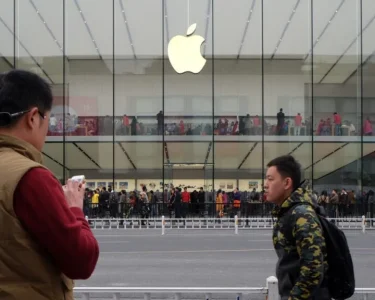The UK government has stepped in to investigate Ticketmaster’s dynamic pricing model after an unprecedented uproar from Oasis fans over ticket prices. The controversy began when fans of the iconic British rock band were left fuming over exorbitant ticket costs during the sale for Oasis’ highly anticipated reunion tour. The price surge, triggered by Ticketmaster’s dynamic pricing system, has reignited debates over fairness and accessibility in the live entertainment industry.
The Dynamic Pricing Dilemma
Dynamic pricing is a model used by Ticketmaster that adjusts the price of tickets based on demand. While this strategy is commonplace in industries like air travel and hospitality, it has been particularly controversial when applied to concert tickets. The model allows prices to fluctuate, sometimes dramatically, as demand spikes. For the Oasis concert, ticket prices soared well beyond what many fans were expecting or could afford, leading to public outcry.
Critics argue that dynamic pricing benefits only scalpers and resellers while exploiting genuine fans who are forced to pay inflated prices. Ticketmaster, however, defends the model, claiming it helps prevent secondary ticket markets from profiting at the expense of artists and event organizers.
Government Response to Fan Outrage
The UK’s Department for Digital, Culture, Media, and Sport (DCMS) has announced that it will investigate Ticketmaster’s dynamic pricing practices. This move comes after hundreds of complaints from disgruntled Oasis fans flooded social media platforms, sharing screenshots of skyrocketing prices within minutes of tickets going on sale. Some fans reported that prices nearly doubled in real-time, raising questions about the transparency and fairness of the system.
A DCMS spokesperson said, “We are aware of the concerns raised regarding Ticketmaster’s pricing model, particularly in relation to the Oasis event. It is essential that fans can access tickets at reasonable prices, and we will be examining the impact of dynamic pricing on consumers.”
The Role of Dynamic Pricing in the Industry
Dynamic pricing isn’t unique to Ticketmaster, but the model has faced increased scrutiny in recent years. Many in the entertainment industry argue that it allows artists to maximize profits while limiting the influence of ticket resellers who often inflate prices on secondary markets. Others, however, see it as a corporate tool that capitalizes on fan loyalty.
For fans, the frustration lies in the unpredictability. While they may initially find tickets at an advertised price, demand can cause prices to skyrocket in seconds, often leaving them priced out of attending events they had eagerly awaited. The backlash over Oasis tickets is not the first time Ticketmaster’s pricing model has come under fire. Similar issues were raised during ticket sales for high-profile artists like Taylor Swift and Adele, sparking widespread public criticism.
The Impact on Oasis Fans and Beyond
For Oasis fans, this controversy hits particularly hard. The band’s reunion tour was a moment fans had waited years for, and the chaos surrounding ticket sales left many feeling disappointed and excluded. Social media platforms were inundated with complaints, with fans calling for reforms and transparency in the ticketing industry. The dynamic pricing model left a significant portion of fans out in the cold, unable to afford tickets as prices soared during the sale.
The Oasis ticketing fiasco has also reignited discussions around fair access to live events. Campaigners are now calling for regulations to be placed on ticket pricing strategies, advocating for clearer guidelines that ensure fans are not exploited by demand-driven price hikes.
What to Expect from the Investigation
The UK government’s investigation into Ticketmaster’s dynamic pricing practices will focus on how the model affects consumers and whether it violates fair trading laws. The DCMS is expected to examine the pricing algorithms used by Ticketmaster and determine whether the system can be made more transparent.
This investigation could have far-reaching implications for the live entertainment industry. Should the government find that Ticketmaster’s dynamic pricing model is unfair or exploitative, new regulations may be introduced to cap price fluctuations or ensure greater transparency in the ticketing process. Additionally, this inquiry may spur other countries to examine similar practices within their own markets.
A spokesperson for Ticketmaster has stated, “We are committed to offering the best possible experience for fans and artists alike. Our dynamic pricing model is designed to combat the resale market and ensure that more tickets remain in the hands of fans at market-driven prices.”
While Ticketmaster defends its pricing strategy, the investigation may force the company to reconsider how dynamic pricing is implemented in the UK and potentially worldwide. Oasis fans and live entertainment enthusiasts will be closely watching the outcome, hoping for a solution that makes concert tickets more accessible and fair for all.
The Future of Ticket Sales
As the investigation unfolds, the live entertainment industry may be poised for change. Dynamic pricing, while a lucrative tool for companies like Ticketmaster, could face limitations or greater oversight in the near future. Whether this investigation will lead to concrete changes remains to be seen, but fans are hopeful that the government’s intervention will result in more affordable and accessible concert experiences.
For now, Oasis fans and others frustrated by dynamic pricing await the UK government’s findings with anticipation. This investigation marks a critical moment in the ongoing debate over fairness in ticket sales and could reshape the landscape of live entertainment for years to come.
For more updates on this and other tech-related stories, visit Digital Digest.






1 Comment